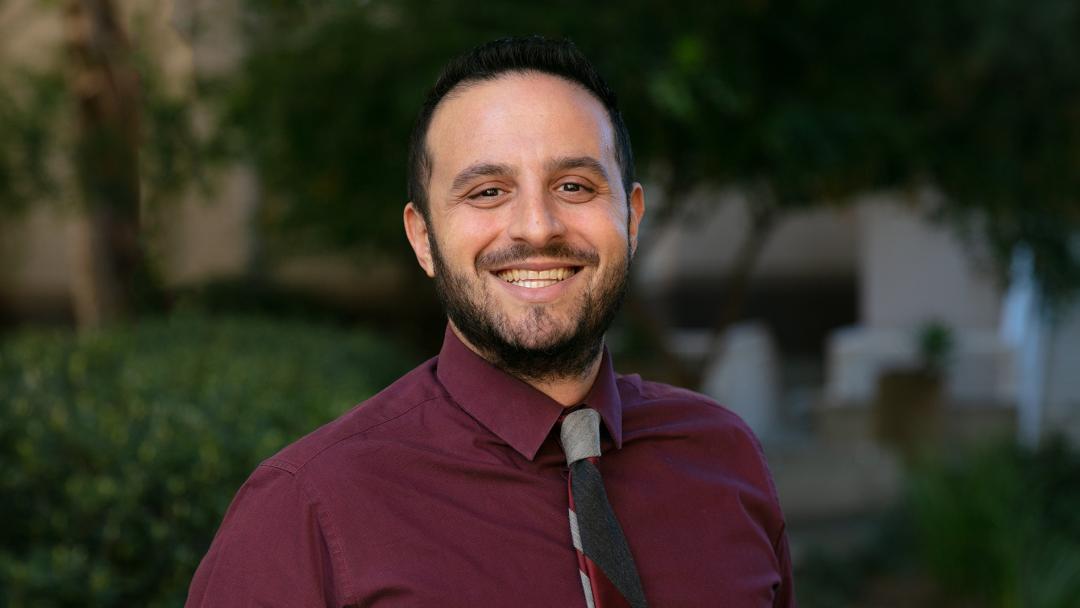
Dmitry Tsukerman
Field Study expands to become Social Ecology Career Services Pipeline
The School of Social Ecology’s Field Study program, which is unique at UC Irvine, has a long reputation for success in ensuring every student in the school gains real-world experience through community-based internships. The program in recent years has expanded the number of community partners hosting interns by 33 percent — and has even “gone global” with international opportunities in Mexico.
It’s enough to make a Field Study director rest on his laurels. But Dmitry Tsukerman wanted more ... especially for the Anteaters he serves.
“About two years ago, I realized that, while our students receive great general career support from UCI’s Division of Career Pathways, they would benefit greatly from having in-house expertise that is specific to the career and graduate school paths most common to Social Ecology majors,” he explains. “Our students are preparing for careers in fields like counseling and psychotherapy, social services, academia, law and law enforcement, urban planning and policy, and environmental consulting — areas that have unique hiring processes, necessary certifications and experiential requirements, and professional networks.”
Tsukerman’s realization — along with support from Dean Jon Gould, Senior Assistant Dean Jennifer dos Santos, Executive Director of Development Stacy Skwarlo, Director of Undergraduate Affairs Danielle Primavera and Senior Field Study Program Coordinator Lizet Ceja — led to the creation of what is now the Social Ecology Career Services Pipeline.
“By creating an in-house career center, we can offer tailored guidance, provide industry-specific programming, and leverage our extensive network of field study partners to create more direct job pathways for our graduates,” says Tsukerman, whose business card now identifies him as the Director of Career Services and Field Study. “We also saw a strong need to increase access to career preparation for first-generation and underrepresented students, many of whom juggle financial and family responsibilities that limit their ability to take unpaid career-building opportunities. This new initiative ensures that all of our students, regardless of background, have the resources and networks they need to thrive after graduation.”
“Field Study can play an even greater role in preparing students for their careers by strengthening career readiness programming, broadening employer and alumni engagement, and increasing professional development opportunities,” said dos Santos in announcing the Social Ecology Career Services Pipeline’s formation. “Additionally, we see this as an avenue to deepen the school’s community engagement and development efforts, further supporting our students and expanding their pathways to success.”
She noted that Field Study had been identified as a key pillar in the school’s new strategic plan.
“It is one of the school’s most valuable programs, providing students with hands-on experience and a direct connection to career opportunities while fostering meaningful community partnerships,” dos Santos said. “As a unifying feature across our undergraduate programs, Field Study has long been recognized as a standout experience for students and employers alike.”
The program’s expansion will directly benefit all Social Ecology students, according to Tsukerman.
“Students will have access to individualized career assessments and counseling from a team specializing in career paths for social ecology graduates,” he says. “They will have guidance in developing their professional road maps, strategically aligning their Field Study experience with their long-term graduate school and career goals. They will build their professional networks through alumni mentorship, career panels, and professional networking events, and be exposed to career opportunities through job fairs and other recruitment activities. These enhancements will make career preparation an intentional and integrated part of a social ecology education from day one, rather than something students scramble to think about in their final year.”
The director has goals to take the Social Ecology Career Services Pipeline even farther.
“We want to build an active mentorship network where students can get guidance from professionals in their desired fields and access job opportunities through social ecology’s established and expanding network of partners,” says Tsukerman. “We also plan to expand career-specific training programs so students can graduate with certifications that make them stand out in competitive job markets.
“Another major goal is securing long-term funding for fieldwork stipends, so that financial barriers do not limit students’ ability to gain meaningful career experiences. The long-term vision is for social ecology students to have one of the most robust and tailored career support systems at UCI.”
— Matt Coker